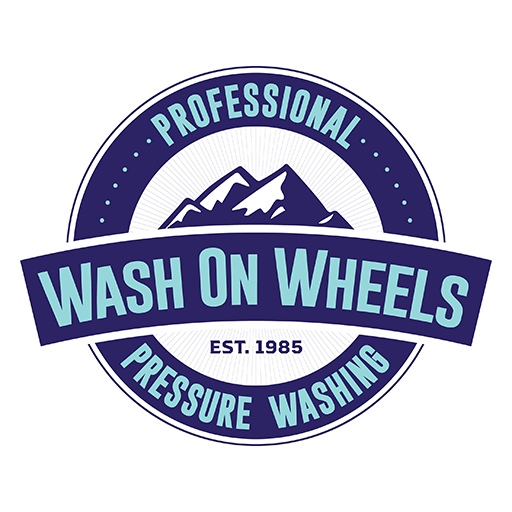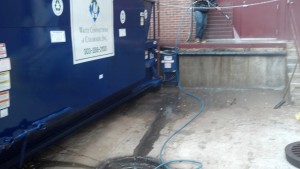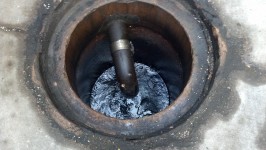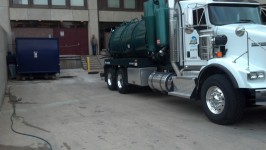Many pressure washing jobs require water recovery due to environmental regulations.
Most large facilities have their own environmental department to keep them in compliance with all the different regulations, including those related to pressure washing. Large corporations are usually more concerned with environmental regulations because they can’t afford not to be. They have a lot more exposure to potential fines – and those fines can be huge.
Smaller companies sometimes pretend they don’t know the regulations related to pressure washing.
They might get away with it but large companies are expected to be on top of wouldn’t. We’ve done many projects for companies that have an environmental department. These companies know we provide professional pressure washing and wash water recovery and can keep them in compliance with regulations.
The University of Denver has an environmental department to keep them in compliance.
And when they had an issue with a trash compactor leaking hydraulic fluid into a storm drain, the environmental compliance manager reported the problem right away to Denver Water and the trash company that owned the compactor.
The trash company had previously called us for pressure washing with water recovery when a trash truck had broken a hydraulic line and left a mess at their customer’s properties. In those situations the hydraulic fluid was just sitting on asphalt or concrete and we were able to contain the fluid and our wash water before it could reach a storm drain. In this particular situation the fluid had already gone into the drain.
However, the drain at this location had a pit built in to function like a grease trap.
Under normal circumstances, any oil-based substance would float to the surface above the drain outlet so only water would discharge to the storm sewer. Since all the hydraulic fluid from the trash compactor went straight to the drain, the level of oil had nearly reached the level of the discharge drain to the storm sewer. They needed a way to suck all the contaminated fluids out of the pit before any more oil-based substances threatened to reach the outlet.
Our water recovery equipment wasn’t designed to suck up and filter contaminated liquids from a pit. Since the trash company and Denver University didn’t have any connections with a company that could provide this service, we called a company we use that has a pumper truck designed for cleaning out grease traps.
We had one of our pressure washing crews meet the pumper truck at the location.
After they pumped out the drain, they also sucked up our wash water as we cleaned up the hydraulic stain on the concrete between the compactor and the drain.
The University and the trash company could have faced large fines if the contaminated water had made it into the storm sewer. But since we had worked with pumper trucks before, the mess was cleaned up and the contaminated water was hauled off-site to be disposed of properly.
This is why our clients call us to make sure the job is done right – the first time.
Related pages and articles
- Pressure Washing Heavy Equipment At A Mine
- Pressure Washing A Truck Mounted Drilling Rig
- Construction Cleanup At A Denver Convenience Store
- Wash On Wheels Cleans Emergency Grease Spill in Longmont’s Downtown Shopping District
- EPA Water Recovery – How Property Managers Can Avoid Costly Fines




